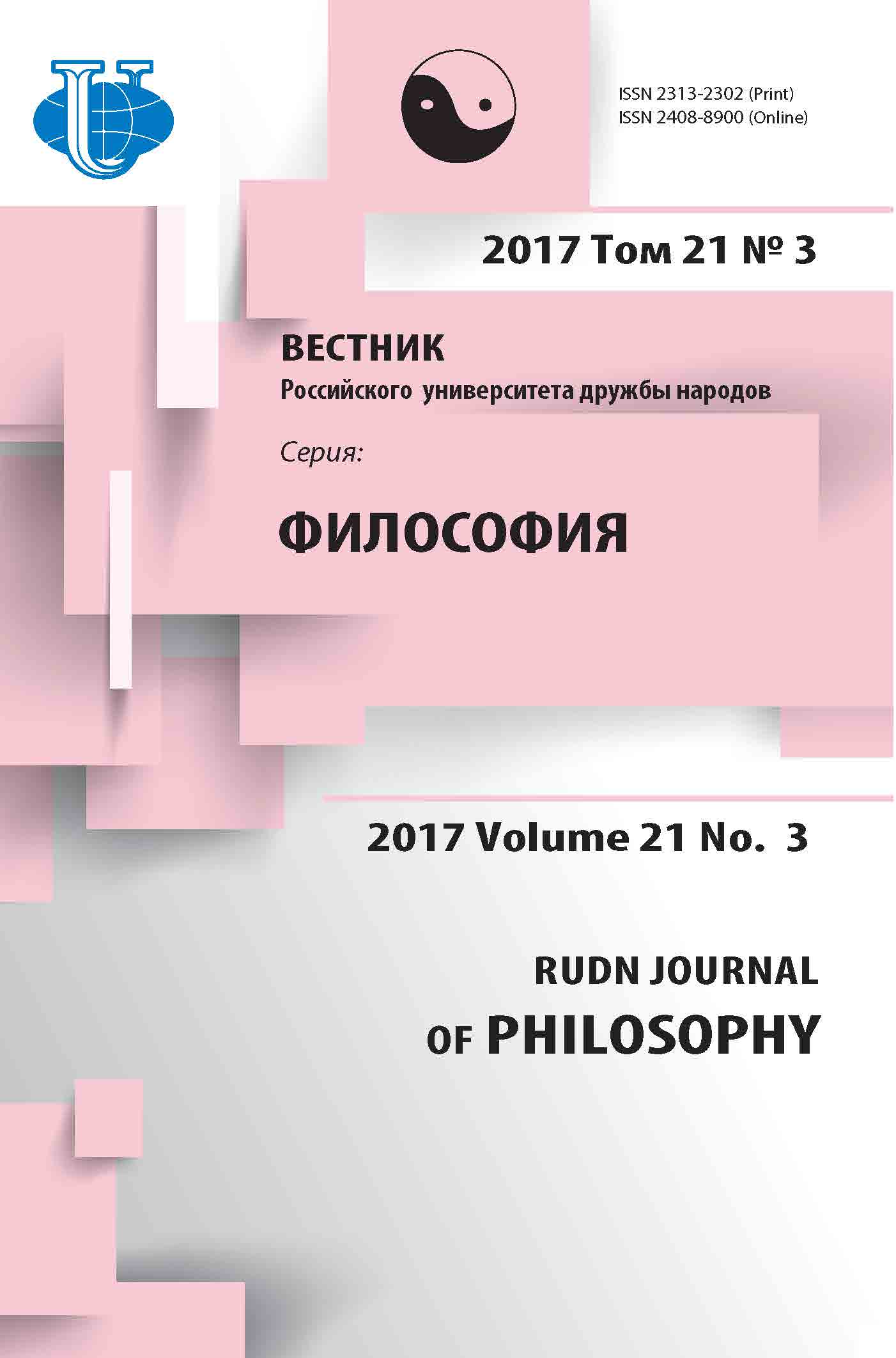VALUE FOUNDATIONS OF RUSSIAN ELECTORAL DISCOURSE
- Authors: Sazonova AA1
-
Affiliations:
- Peoples’ Friendship University of Russia (RUDN University)
- Issue: Vol 21, No 3 (2017)
- Pages: 353-360
- Section: Articles
- URL: https://journals.rudn.ru/philosophy/article/view/16983
- DOI: https://doi.org/10.22363/2313-2302-2017-21-3-353-360
- ID: 16983
Cite item
Full Text
Abstract
The subject of the article is Russian electoral discourse. The historical-philosophical analysis and the value bases of this phenomenon are presented. The concept of discourse reflects not only the speech characteristics of a certain group of people, but also the specifics of the social structure. Thus, electoral discourse represents a socially conditioned organization of speech space associated with electoral processes. To understand the specifics of modern electoral discourse, its value bases are given special attention. The philosophical ideas of N. Berdyaev, I. Il’in, N. Karamzin, O. Klyuchevsky, G. Plekhanov and others are presented in the article. The article presents in detail the analysis of the formation of Russian political thought and the electoral tradition. The binary nature of Russian historical development is obvious: the way of life in Russia has been infinitely changed under the influence of Asian and European factors. Particular attention is paid to the post-Soviet period and the formation of a modern electoral system. The author identifies three main factors that influence the formation of the quality of domestic electoral discourse: the lack of competition, the emerging institution of property law, the adoption of political tradition. The nega-tive aspects of Russian electoral discourse are singled out. The study of this phenomenon will allow to define the mechanisms of management of social changes that can be used by different social groups to achieve certain goals of social development.
About the authors
A A Sazonova
Peoples’ Friendship University of Russia (RUDN University)
Author for correspondence.
Email: sazonova_aa@rudn.university
Сазонова Анна Александровна - аспирантка кафедры социальной философии факультета гуманитарных и социальных наук Российского университета дружбы народов
6, Miklukho-Maklaya St., 117198, Moscow, Russian FederationReferences
- Baza dannyh VCIOM. Oficial’nyj sajt VCIOM. Available from: http://wciom.ru/zh/print_ q.php?s_id=583&q_id=41860&date=21.12.2008 (In Russ).
- Baza dannyh oprosov VCIOM. Oficial’nyj sajt VCIOM. Available from: http://wciom.ru/ database/baza_rezultatov_oprosa_s_1992_goda (In Russ).
- Berdjaev NA. Sud’ba Rossii. Biblioteka Jakova Krotova. Available from: http://krotov.info/ library/02_b/berdyaev/1918_15_01.html (In Russ).
- Gadzhiev KS. Rossija mozhet sohranit’ velichie, tol’ko ostavajas’ Rossiej. Nauchno-obrazova¬tel’nyj forum po mezhdunarodnym otnoshenijam. Moscow: 2010; (24): 134—137 (In Russ).
- Ilin IA. O Rossii. Moscow: 1996. (In Russ).
- Ilin IA. Rodina i my. In: Sobr. Soch. Moscow: 1996. (In Russ).
- Karamzin N. Istorija gosudarstva Rossijskogo. Pravoslavnaja biblioteka Azbuka Very. Available from: https://azbyka.ru/otechnik/Nikolaj_Karamzin/istorija-gosudarstva-rossijskogo/5_4 (In Russ).
- Kljuchevskij VO. Kurs russkoj istorii. Lekcija. Pravoslavnaja biblioteka Azbuka Very. Available from: https://azbyka.ru/otechnik/Vasilij_Klyuchevskij/kurs-russkoj-istorii/3 (In Russ).
- Moiseenko MV. Obraz Rossii v trudah filosofov russkogo posleoktjabr’skogo zarubezh’ja. Vestnik Rossijskogo universiteta druzhby narodov. Serija: Filosofija 2002;(3):129—124. (In Russ).
- Moiseenko MV. Filosofija kul’tury Rossii. Kul’turologija: konspekt lekcij. Moscow: RUDN; 2007. (In Russ).
- Plehanov GV. Sochinenija. Tom III. Moscow: Gosizdat: 1926.
- Pogodin MP. Petr Velikij. Biblioteka Literatura i zhizn. Available from: http://dugward.ru/library/ pogodin_m_p/pogodin_petr_velikiy.html (In Russ).
- Sizov IV. Cennostnye osnovanija politicheskogo uchastija v sovremennoj Rossii. [dissertation]. Moscow; MGU; 2013. (In Russ).
Supplementary files















